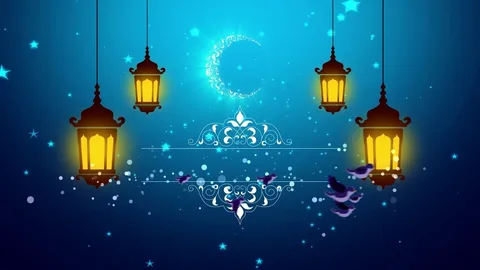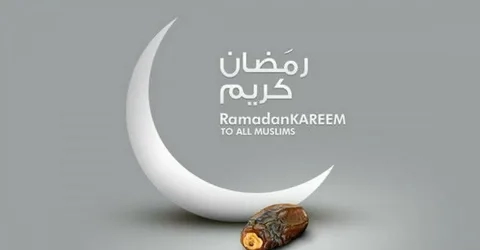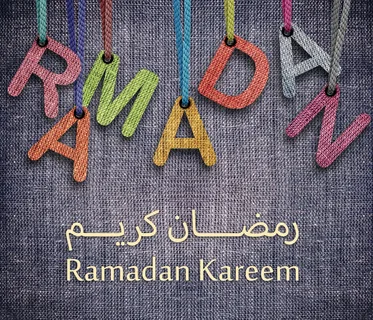Last Updated on December 12, 2024 by Arabian Tongue Team
Ramadan, the holiest month in the Islamic calendar, holds immense significance for Muslims worldwide. It is a time of reflection, spiritual growth, and heightened devotion. As this sacred month approaches, Muslims around the world exchange greetings of “Ramadan Mubarak” to mark the beginning of this auspicious period, in this article on Arabian Tongue we will explorer how to response to ramadan mubarak.
History and Origins of Ramadan

The observance of Ramadan traces its origins back to the time of Prophet Muhammad (peace be upon him) in the 7th century CE. It commemorates the revelation of the Quran, the holy book of Islam, to the Prophet during the month of Ramadan. Over the centuries, Ramadan has evolved, incorporating various cultural practices and traditions, but its core essence remains unchanged.
Meaning of “Ramadan Mubarak”
The phrase “Ramadan Mubarak” translates to “Blessed Ramadan” in English. It serves as a warm and heartfelt greeting exchanged among Muslims during the month of Ramadan. Beyond its literal meaning, “Ramadan Mubarak” symbolizes a wish for blessings, prosperity, and spiritual fulfillment throughout the month.
How to Greet Someone with “Ramadan Mubarak”
Greeting someone with “Ramadan Mubarak” is a gesture of goodwill and respect. It is commonly used at the beginning of Ramadan to convey best wishes for a blessed and fulfilling month ahead. When offering this greeting, it is essential to do so sincerely and with genuine intentions, fostering a sense of camaraderie and unity within the community.
Importance of Greetings during Ramadan
During Ramadan, greetings play a crucial role in fostering a sense of belonging and unity among Muslims. They serve as expressions of kindness and solidarity, reinforcing the spirit of compassion and empathy that defines this sacred month. By exchanging greetings like “Ramadan Mubarak,” individuals strengthen bonds within their communities and spread positivity to those around them.
Variations of Ramadan Greetings

While “Ramadan Mubarak” is a widely recognized greeting, there are variations used across different cultures and regions. In addition to “Ramadan Mubarak,” phrases like “Ramadan Kareem” (Generous Ramadan) and “Ramadan Sa’id” (Happy Ramadan) are also commonly exchanged. Each greeting carries its own nuances but shares the common theme of wishing blessings and happiness during Ramadan.
Etiquette of Ramadan Greetings
When offering Ramadan greetings, it is essential to do so respectfully and considerately. This includes being mindful of cultural sensitivities and observing proper etiquette when interacting with others. Additionally, it is important to respond graciously when receiving greetings, reciprocating the goodwill and fostering positive interactions within the community.
Ramadan Mubarak in the Digital Age
In today’s digital era, the exchange of Ramadan greetings has transcended physical boundaries, with social media platforms serving as channels for spreading messages of positivity and unity. Hashtags such as #RamadanMubarak and #BlessedRamadan are used to connect Muslims worldwide, allowing them to share their experiences and reflections during this special time.
Impact of Ramadan Greetings on Society
The practice of exchanging Ramadan greetings extends beyond the Muslim community, promoting inclusivity and understanding among people of different faiths and backgrounds. By acknowledging and respecting cultural traditions, individuals can bridge divides and foster meaningful connections based on mutual respect and goodwill.
Ramadan Mubarak in Non-Muslim Communities
Non-Muslims may also encounter Ramadan greetings during this time, either through interactions with Muslim friends and colleagues or through media and public spaces. Responding to these greetings with warmth and appreciation demonstrates respect for cultural diversity and promotes harmony within society.
Reflections on Ramadan Mubarak
For many Muslims, the exchange of Ramadan greetings holds special significance, evoking fond memories of shared meals, prayers, and moments of spiritual reflection. It serves as a reminder of the collective spirit of unity and compassion that defines Ramadan, inspiring individuals to strive for personal growth and acts of kindness throughout the month.
The Spirit of Ramadan Mubarak
At its core, “Ramadan Mubarak” embodies the spirit of generosity, compassion, and goodwill that defines Ramadan. It serves as a reminder to individuals to embody these virtues in their actions and interactions throughout the month, extending kindness and empathy to those in need and contributing to the well-being of society as a whole.
Celebrating Diversity during Ramadan
During Ramadan, Muslims from diverse cultural backgrounds come together to observe this sacred month, celebrating their shared faith while embracing their unique traditions and customs. By recognizing and appreciating this cultural diversity, individuals can enrich their Ramadan experience and strengthen bonds within the global Muslim community.
The importance of Ramadan for Muslims
Ramadan holds immense significance for Muslims worldwide, encompassing various dimensions that shape both individual and collective spiritual practices and community cohesion. Here are some key aspects of its importance:
- Spiritual Renewal: Ramadan serves as a time for Muslims to engage in heightened spiritual devotion, including increased prayer, recitation of the Quran, and reflection. Fasting from dawn until sunset fosters self-discipline, self-control, and mindfulness of one’s actions, thoughts, and words.
- Connection with Allah: Muslims believe Ramadan is a special time for drawing closer to Allah through acts of worship and repentance. It offers an opportunity for believers to strengthen their relationship with the Divine through increased prayer, supplication, and seeking forgiveness.
- Community and Solidarity: Ramadan fosters a sense of unity and solidarity among Muslims globally. The communal aspect of fasting, breaking the fast (iftar) together, and congregational prayers, such as Taraweeh, reinforce bonds within families, neighborhoods, and the wider Muslim community.
- Empathy and Compassion: Fasting during Ramadan fosters empathy and compassion for those who are less fortunate. Experiencing hunger and thirst firsthand encourages Muslims to be more charitable and generous, exemplifying the Islamic principle of caring for others, particularly the marginalized and needy.
- Reflection and Self-Improvement: Ramadan offers an opportunity for introspection and self-improvement. Muslims strive to enhance their character, purify their intentions, and cultivate virtuous qualities such as patience, gratitude, and humility throughout the month.
- Revelation of the Quran: Muslims believe The month of Ramadan in which the Quran, the holy book of Islam, was revealed to the Prophet Muhammad (peace be upon him). Therefore, it is a time for increased recitation, reflection, and study of the Quran, with many Muslims aiming to complete its recitation during the month.
- Seeking Forgiveness and Redemption: Ramadan is regarded as a time of spiritual purification and seeking forgiveness for past sins. Muslims engage in increased acts of worship, repentance, and seeking pardon from Allah, with the belief that sincere repentance and good deeds can lead to redemption and spiritual purification.
HOW Arabian tongue shapes your journey of LEARNing QURAN and arabic?
At Arabian Tongue, we empower you with the tools that allow for reflecting on the meanings of the Quran and sensing the greatness of the Creator. We incorporate unique teaching methods in our courses listed below:
- Learn Quran Online
- Online Arabic Classes
- Learn Tagweed Online
- Arabic grammar course online for beginners
- Quran Ijazah Course for Kids
FAQs
What is the significance of Ramadan Mubarak?
Ramadan Mubarak signifies blessings and well-wishes for a fulfilling month of Ramadan.
How should I respond to someone who greets me with Ramadan Mubarak?
You can respond with Ramadan Mubarak or Thank you, and Ramadan Mubarak to you too.
Are there other variations of Ramadan greetings?
Yes, variations like Ramadan Kareem and Ramadan Sa'id are also commonly used.
Can non-Muslims greet Muslims with Ramadan Mubarak?
Yes, non-Muslims can offer Ramadan greetings as a sign of respect and inclusivity.
Hashtags like #RamadanMubarak allow Muslims to connect and share their Ramadan experiences globally.
Conclusion
In conclusion, “Ramadan Mubarak” is more than just a greeting; it is a symbol of unity, compassion, and spiritual growth. As Muslims prepare to observe Ramadan, the exchange of this heartfelt greeting serves as a reminder of the values that define this sacred month and the importance of spreading positivity and goodwill within society.

